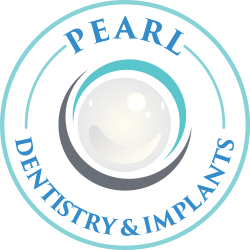, but it’s also a great way to get rid of germs that cause bad breath. Can you guess what it is? We’ll give you a hint: you’ve probably lied to your hygienist about it. The answer: Flossing! If the threat of gum disease and cavities isn’t enough to get you flossing everyday, maybe the idea of embarrassing bad breath will be. The importance of flossing can be hard to perceive, because unlike the plaque on the fronts and backs of your teeth, the plaque between them is harder to see and impossible to feel. But there’s a very good chance the people around you can smell it. When you only brush your teeth you miss out on cleaning a significant amount of the surface of your teeth. Unlike brushing, flossing allows you to go as much as 2 millimeters under your gums, allowing you to remove unseen bacteria from the surface of your teeth. If it isn’t removed, this bacteria will sit in your mouth and start expelling the stinky gasses that cause bad breath. Remember, it is especially important to floss if you have dental implants or a dental bridge. These “replacement teeth” offer more places for food particles and the bacteria that feeds off them to hide. While crowns and implants aren’t vulnerable to cavities, they also don’t make you immune to gum disease! There are special kinds of floss that make getting in and around your dental prosthesis easier than with traditional floss. Water picks are also good alternatives to floss that can flush away stinky breath bacteria. If you want a tutorial on the best way to floss for your particular oral health situation, please ask us at your next visit. We would be happy to give you a refresher to improve your dental hygiene routine! ]]>
A Quick & Simple Bad Breath Prevention Tip




